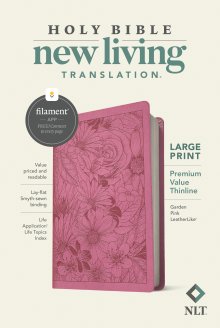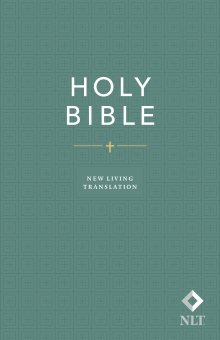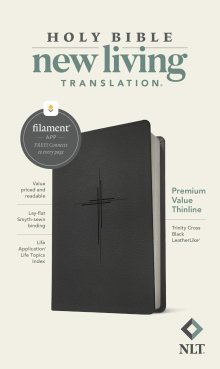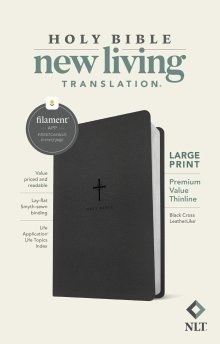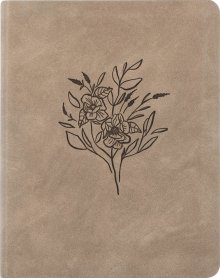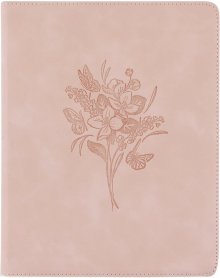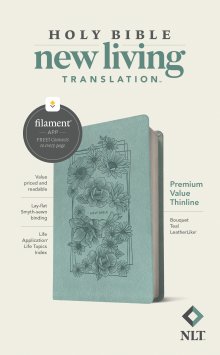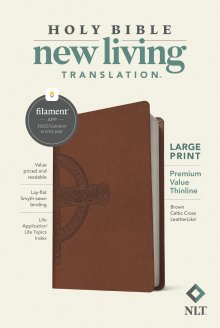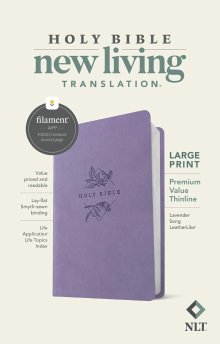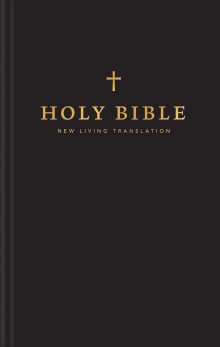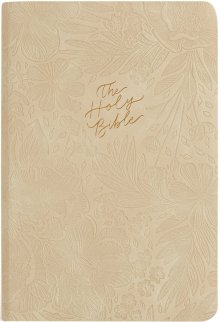The NLT Bible: Your Top 10 Questions Answered
The Editor

The New Living Translation (NLT) is one of the most popular and beloved Bible translations available today, celebrated for its warmth, clarity, and easy-to-read style. But it also generates a lot of questions.
Is it a real translation or just a paraphrase? Is it accurate enough for study? Is it the right choice for a new believer?
If you've ever asked these questions, you're in the right place. We've compiled the top 10 questions people ask about the NLT and answered them clearly and directly to help you understand this wonderful translation and decide if it's the right choice for you.
The NLT is a formal "thought-for-thought" translation, not a paraphrase, created by 90 scholars for maximum readability and clarity, making it highly accurate to the original meaning and an excellent choice for beginners and daily devotional reading.
1. Is the NLT a translation or a paraphrase?
The NLT is a formal translation of the Bible. It's a common misconception that it's a paraphrase because of its exceptional readability. It was created by a team of 90 scholars working from the original Hebrew, Aramaic, and Greek texts.
2. How accurate is the NLT?
The NLT is considered highly accurate in conveying the original meaning of the text. It uses a "thought-for-thought" (or dynamic equivalence) translation philosophy. This means that instead of translating each word literally, the scholars worked to translate the original thoughts and ideas into natural, modern English. So, while it may not be as grammatically literal as the ESV or NASB, it is a very faithful and reliable rendering of the original authors' intent.
3. Is the NLT good for beginners?
Yes, absolutely. The NLT is arguably one of the best Bible translations for beginners, new believers, or young people. Its use of warm, everyday language removes many of the barriers that can make other translations feel intimidating, allowing the reader to connect with the heart of the Bible's story with clarity and confidence.
4. What's the difference between the NLT and the NIV?
Both the NLT and NIV are "thought-for-thought" translations, but they sit at different points on the spectrum. The NIV seeks to find a balance between being literal and readable. The NLT prioritises readability and clarity even more, resulting in a warmer, more dynamic, and often simpler text.
5. Can I use the NLT for serious study?
You can, with a caveat. The NLT is excellent for study that focuses on understanding the "big picture" of a passage, the narrative flow, and the main ideas. However, for deep, technical word studies where the exact original wording is important, most pastors and scholars would recommend using a "word-for-word" translation like the ESV or NASB as your primary tool, with the NLT as a helpful companion.
6. Who was the NLT translated by?
The NLT was translated by a team of 90 leading evangelical Bible scholars from a wide variety of denominations. These theologians and linguists worked for seven years, carefully reviewing and revising the text to ensure it was both accurate and exceptionally clear.
7. What's the difference between the NLT and the original Living Bible?
This is a crucial distinction. The original Living Bible (1971) was a paraphrase written by one person, Kenneth N. Taylor. The New Living Translation (NLT) is a completely new work—a full translation by a large committee of scholars working from the original language manuscripts. The NLT was created to be a trustworthy and reliable translation, whereas its predecessor was a thought-provoking paraphrase.
8. Why do some pastors not recommend the NLT?
Pastors who prioritise a "word-for-word" translation philosophy for preaching and teaching may prefer a version like the ESV, NASB, or NKJV. This is because these translations preserve more of the original Greek and Hebrew sentence structure and specific wording, which can be beneficial for detailed expository preaching. It's usually not a question of the NLT being "bad," but a matter of choosing the right tool for the specific task of sermon preparation.
9. What is the best NLT Study Bible?
Without a doubt, the NLT Life Application Study Bible is the most popular and, for many, the best NLT Study Bible available. Its notes are laser-focused on helping you apply the Bible's timeless truths to your everyday life, making it an incredibly practical and encouraging resource.
The Bestselling NLT Study Bible:
NLT Life Application Study Bible
★★★★★
"Thoroughly enjoying using this study Bible. It makes conreferencing and life application easier, and I love understanding the context of each book. I'd recommend."
10. Is the NLT a good choice for me?
The NLT is an excellent choice for you if your primary goal is daily reading and personal devotion. If you want a Bible that speaks with warmth and clarity, helps you connect with the heart of the story, and removes the barriers of intimidating language, then the NLT is one of the best translations you can choose.
Latest Blogs

Bible
Why is the Bible Called The Bible? (A Simple Explanation)
Ever wondered where the name "Bible" comes from? Discover the simple meaning behind the word and why it's called 'the books'.

Bibles
The ERV (Easy-to-Read Version): Your Questions Answered
What is the ERV Bible? Is it accurate? Our simple guide answers the top questions about the Easy-to-Read Version and compares it to the NIV and NLT.

Bible
I’m a New Christian, Where Do I Even Start with the Bible?
Feeling excited but overwhelmed about reading the Bible for the first time? This simple, friendly guide for new Christians shows you exactly where to start, what to read first, and how to understand it.

Bibles
NLT vs. KJV: A Guide to Readability and Tradition
Comparing the NLT vs. the KJV Bible? Our simple guide explains the key differences in language and style to help you choose the best translation for you.

Bibles
ESV vs. KJV: A Guide to Choosing Your Literal Bible Translation
Comparing the ESV vs. the KJV Bible? Our guide explains the key differences in language and accuracy to help you choose the best word-for-word translation.

Bible
Bible Translation Reading Levels Explained (A Simple Guide)
Understand Bible translation reading levels easily. Our guide explains the reading age for NIV, NLT, ESV, KJV & more to help you choose the right Bible.

